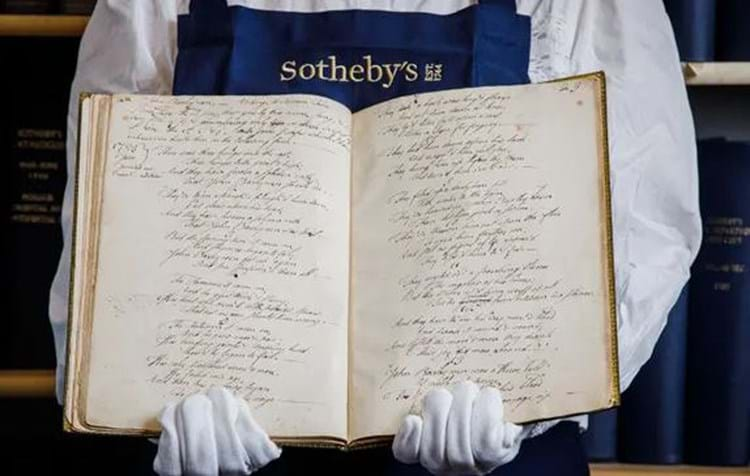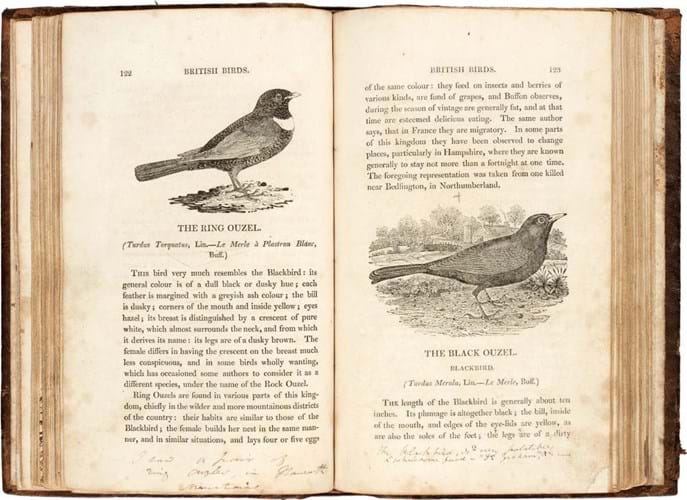It had been due to be auctioned across three sales by Sotheby’s with the first planned in July. However, as reported in ATG 2495, museums including The Brontë Society & Brontë Parsonage Museum raised concerns that this did not give them sufficient time to prepare a bid to acquire some or all of the collection.
Sotheby’s and the owner of the library agreed to delay the auction to give the institutions a chance to fundraise.
After a campaign earlier this year £15.3m was raised – a £15m purchase price plus VAT and fees.
The lead donor is billionaire businessman Sir Leonard Blavatnik who is Britain’s richest man. He match-funded the sum raised by FNL and the consortium institutions, donating half the purchase price.
In recognition of this, the collection will now be known as the Blavatnik Honresfield Library.
The contents of the Honresfield Library was originally put together by Arthur Bell Nicholls, the widower of Charlotte Brontë, and later acquired by the Rochdale mill owners Alfred and William Law who lived at Honresfield House – 20 miles from the Brontë family home in Haworth.
Following the deaths of the Law brothers the library was inherited in 1913 by a nephew, Sir Alfred Law, and has been largely inaccessible to the outside world for the last 80 years.
It remained in the family until this year when it was consigned to auction.
The FNL said the collection will remain permanently in the public domain and “will never be lost to overseas institutions or to private collections that are not accessible to the public”.
Among the highlights of the extensive collection is a set of manuscripts in the hands of Charlotte, Emily and Anne Brontë. It includes seven of Charlotte’s famous ‘little books’, each of which is a work of art; a manuscript collection of poems by Anne; some 25 letters by Charlotte and an autograph manuscript diary note shared by Emily and Anne.
The FNL believes the “jewel in the crown” is Emily’s holograph notebook of 31 poems, believed by many scholars to have been lost. This poetry notebook carries annotations in Charlotte’s hand.
Geordie Greig, chairman of FNL, said: “There has been unprecedented public interest in this collection of manuscripts and books hidden for almost a century. Rescuing it has seemed a little like opening an Egyptian tomb to see for the first-time ancient texts and treasures which are now saved in perpetuity for students, scholars, and booklovers. Thanks to FNL’s successful campaign the collection will be shared by libraries and writers’ houses all across our island, restoring a treasure trove of manuscripts to their birthplaces.”
This purchase was also funded by National Heritage Memorial Fund (NHMF) with a grant of £4m – the largest it has ever awarded towards the acquisition of literary manuscripts since its foundation in 1980.
Other funders include The Prince of Wales Charitable Foundation, The Murray Family, Camelot Group, The Foyle Foundation, The David Cock Foundation, The TS Eliot Foundation, Hugh and Catherine Stevenson; Berkeley Foundation; British Library Collections Trust; American Trust for the British Library; BH Breslauer Fund of the American Trust for the British Library; The Ardeola Trust; The Vogel-Denebeim Family and the Penchant Foundation.
Charles Russell Speechlys’ Art & Luxury law team advised FNL.
Sotheby’s acted on behalf of the vendor. Dr Gabriel Heaton, Sotheby’s English literature and historical manuscripts specialist, said: “We were amazed and delighted at the incredible ambition of the FNL’s plan to acquire the whole library and they deserve every credit for bringing their campaign to a successful conclusion. Their success is a testament to what can be achieved by the collaboration of public institutions and private collectors.”







